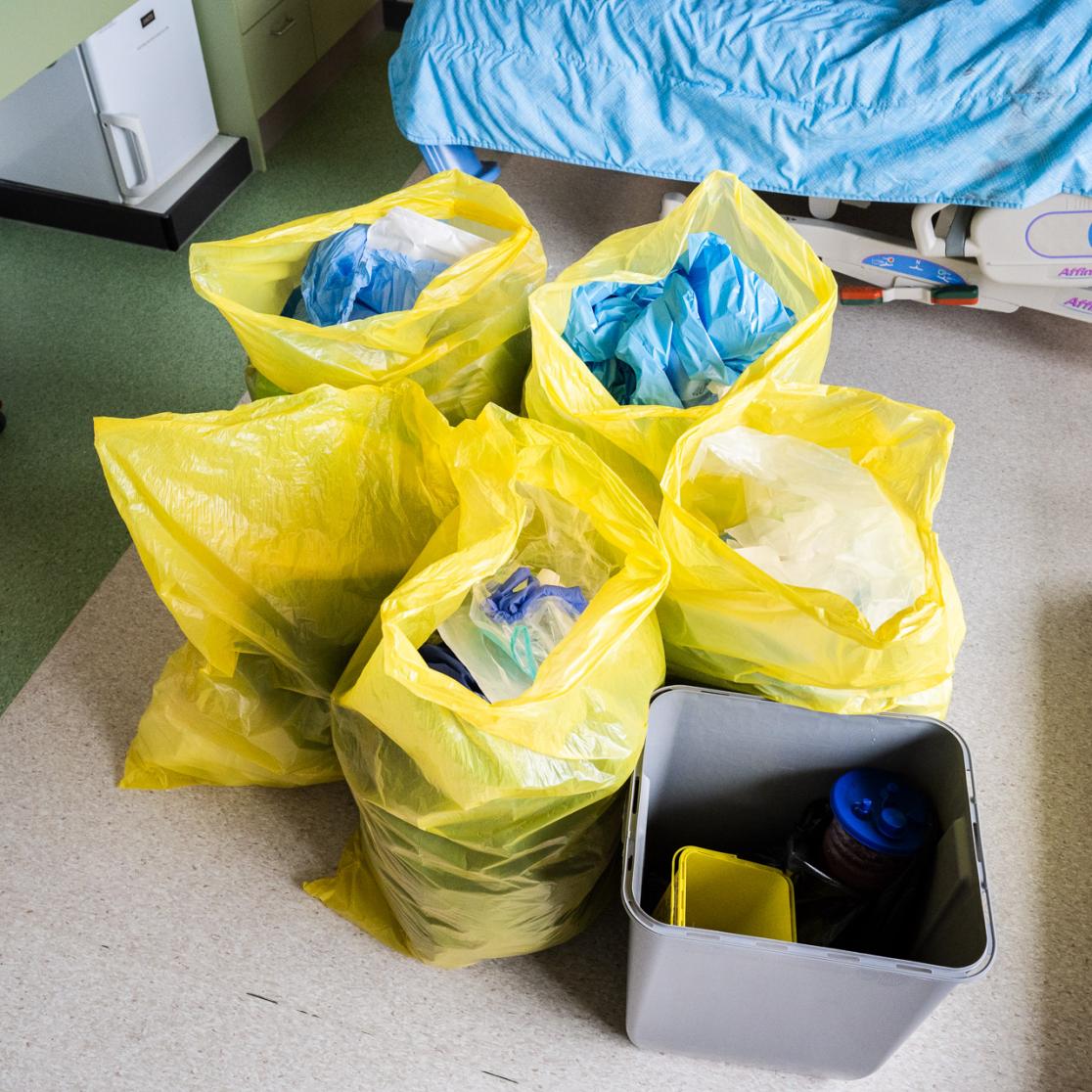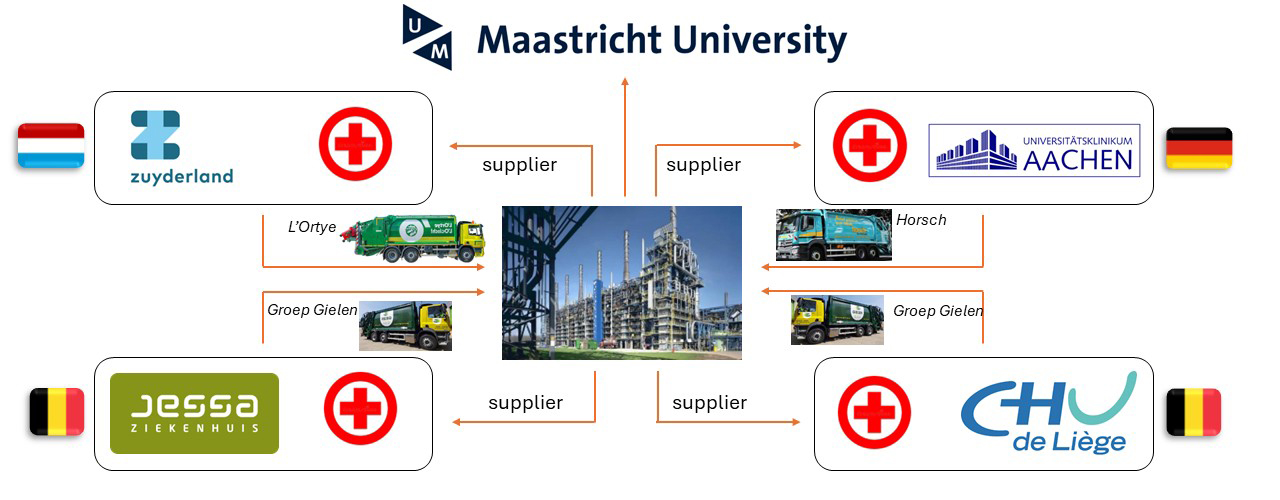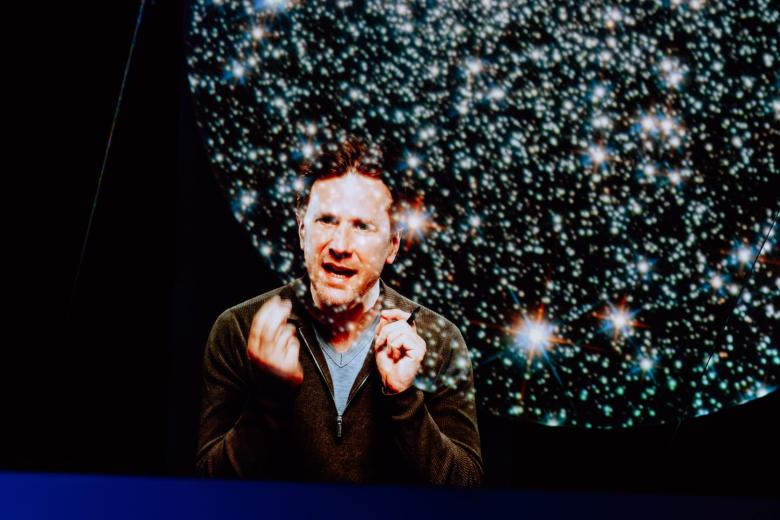Hospital plastic gets a second life: €3 million grant opens door to greater circularity in healthcare
What began as a local pilot in the operating theatres of Zuyderland Medical Centre has now grown into a groundbreaking European initiative with global potential. Thanks to an EU grant of over €3 million, the CIRHECA project—Circular Transformation of Health and Care Systems in the Meuse-Rhine Region—is officially underway. Its mission: to stop burning clean plastic in hospital waste and instead recycle it into high-quality materials for reuse in medical applications.
Hospitals are responsible for 8% of all plastic waste in Europe. Much of this material is clean and technically suitable for reuse, yet it often ends up in incinerators. Two pilot projects proved change is possible: Zuyderland Medical Centre developed a system to separate clean plastic waste in operating theatres, while Jessa Hospital in Hasselt did the same for their renal dialysis department. Meanwhile, SABIC processed the plastic into new plastic of identical quality. This local circular solution is now being scaled up across Europe.
From regional innovation to international blueprint
Led by Maastricht University and supported by Interreg Meuse-Rhine, CIRHECA launched officially on 1 September. The consortium includes UM, Zuyderland Medical Centre, Jessa Hospital, SABIC, UniKlinikum Aachen, CHU Liège, and logistics partners L’Ortye, Gielen, and Horsch. Together, they process 4,200 tonnes of hospital plastic annually. But the ambition goes further: CIRHECA aims to create a scalable blueprint for international medical waste recycling, a model adaptable to hospitals worldwide.

A unique collaboration with global impact
In practice, hospital staff separates the waste, which specialised carriers then process and transport to the recycling plant at Chemelot. There, it is converted into an oil-like substance that SABIC uses to produce high-grade plastics suitable for medical use. A key focus is navigating regulations, especially for cross-border transport of medical waste, a challenge CIRHECA actively addresses.
Bart van Grinsven, lead researcher at Maastricht University: “What makes CIRHECA unique is that it brings together doctors, engineers, transporters, and scientists. We’re building trust, knowledge, and a sustainable future. This project shows that circular healthcare isn’t just a vision, it’s becoming a reality, with potential for hospitals worldwide.”
CIRHECA is supported by the European Union and the Interreg Meuse-Rhine (NL-BE-DE) programme with a contribution of € 1.510.826.
The project has also received a contribution from the Ministerium für Wirtschaft, Innovation, Digitalisierung und Energie des Landes Nordrhein-Westfalen (DE), Région Wallonne (BE), the Ministry of Economic Affairs (NL), and the Province of Limburg (NL).


Also read
-
AMIBM hosts the final Realise-Bio conference
The Aachen Maastricht Institute of Biobased Materials (AMIBM) hosted last week the third and final Realise-Bio annual conference, bringing together the Dutch and German bioeconomy ecosystems at the Brightlands Chemelot Campus.

-
Teacher Information Points at UM
UM faculties now host Teacher Information Points (TIPs) that offer local, “just-in-time” and on-demand support for teaching staff. The aim is simple: to provide help that is closely connected to day-to-day teaching practice.

-
In Kerkrade, you can listen to the invisible universe
UM and Discovery Museum in Kerkrade make the Einstein Telescope understandable for everyone.
